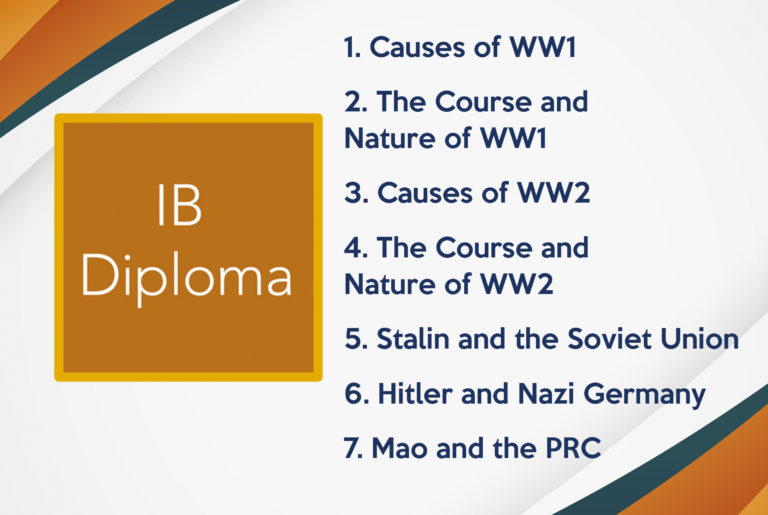Stalin’s great mistake in 1941
If Hitler was blind to the huge risk he was taking by invading the Soviet Union in 1941, given that German forces were already stretched on a number of fronts and Britain still hadn’t been defeated, what was Stalin’s thinking?
With France defeated, Stalin embarked on something akin to his own appeasement of Hitler. Claims by Hitler that the Soviet Union was reneging on her promises to supply raw materials (a result of the German-Soviet Trade and Credit Agreement that preceded the Nazi-Soviet Pact) were simply not true, the German Foreign Office itself reported that the Soviet Union was in fact delivering more than had been agreed. And Stalin would not allow the army to do anything that might provoke Hitler.
Dmitri Volkogonov, the Russian historian, was of the opinion that it was the poor performance of Soviet troops in the Winter War that left Stalin so concerned not to provoke Hitler. Molotov would later return to the need to properly prepare themselves when he said, ‘In order to delay the war everything was done to avoid giving the Germans a pretext to start it.’[1] The evidence shows, and what unfolded confirms, that the Soviet Union was indeed ill-prepared to defend itself, let alone attack Germany. Whatever, Stalin had also noted (how could he not?) how easily the Germans had swept the French and British aside in 1940.
It wasn’t that the Soviet Union had just been sitting idly by, waiting on events. The whole notion of the Nazi-Soviet Pact from the Soviet side of things was to give it time to prepare for war. But the sweeping purges Stalin had imposed on the armed forces had left the Soviet military without the experienced leadership it now desperately needed. While rearmament was also affected by the purges that had swept away experienced managers in industry and technological experts too. So Hitler was right in that respect at least. But Stalin, though aware that Hitler hadn’t changed his views when it came to communism, and hadn’t given up on lebensraum, believed that he had at least until 1942 or 1943 before Germany would be ready.
What is more, though serious problems remained, the Red Army out-numbered the Germans and the Soviet Union had the largest air force in the world. Stalin had also reached a settlement with the Japanese which would last until 1945 and which allowed him to transfer more as well as supplies to the West. Though still, Stalin was desperate to avoid war.
With German forces clearly gathering in numbers on the frontier, Stalin ignored a proposal from his Chief of Staff to seize the initiative and launch a surprise attack on them. What was worse, no operational plans were issued for the Soviet Union’s defence. So that when the Germans did attack, the Soviet response followed no pre-determined plan, because one didn’t exist.
But the gravest error of judgment on Stalin’s part was to ignore the intelligence he was receiving – from America and Britain as well as the Soviet Union’s own sources – all telling him that an attack was imminent. Not only was the anticipated date of the attack always within the period planned by the Germans but a report presented to Stalin in March, 1941, correctly identified the objectives of the three German Army Groups. And when German reconnaissance planes started photographing Soviet air bases (there were 200 such flights), Stalin refused to allow any action to be taken against them.
Stalin was convinced that Hitler would not attempt to defeat the Soviet Union with its vast expanse of territory through blitzkrieg. Consequently Hitler would need more time to build his stock of war materials. As for British reports that an attack was imminent, he saw this as nothing more than an attempt to provoke the Soviet Union and Germany into war. And as for the German troops massing on the border, these he thought were part of Hitler’s way of pressurising the Soviet Union to provide Germany with more raw materials. Even when reports came in that the Germans were building rafts and pontoon bridges on the river frontier with Poland, Stalin wasn’t convinced. As for the Russian people, they were oblivious to what was going on. Soviet newspapers made no reference to the fact that everywhere else in the world was reporting that war between themselves and Germany was imminent.
Then, on the evening of June 21st, with reports from German deserters informing them that the attack would begin early the following morning, Generals Timoshenko (Commissar for Defence) and Zhukov (the Red Army’s chief of the general staff) went to see Stalin in a desperate attempt to get him to put the Soviet troops in a state of combat readiness, moving troops into forward defensive positions, camouflaging aircraft and preparing blackouts. Zhukov had a draft order already prepared. It so happened that the Politburo were gathering for a meeting but even with all evidence pointing toward a full-scale attack, neither they, nor Stalin were willing to provoke the Germans. By the time an order was sent, which was only to assume a state of alert and to man the frontier posts, the Germans had cut communication cables and few Red Army units received it.
At 3.30 in the morning of June 22nd Timoshenko and Zhukov received news of attacks from across the fronts. Stalin had to be woken up, the Politburo was summoned and Timoshenko and Zhukov met with the political leadership for the second time that night. The German embassy was contacted and the ambassador read out Hitler’s prepared statement. Molotov was furious at the depth of the deception, a breach of faith he shouted down the phone that was unprecedented in history (Czechs and Poles might disagree). Stalin, who had been expecting a list of demands from Hitler, was still struggling to take in what was happening.
Stalin was shocked by what had unfolded. Despite the warnings he had not expected the Germans to attack, and he must have felt a personal responsibility. It is thought that he suffered some kind of break down and for more than a week the Soviet Union was virtually leaderless when previously every decision had been channelled through Stalin. Though it is only right to note that Richard Overy suggests this was very much not the case, Alan Bullock refers to the meeting Molotov and other members of the Politburo had with Stalin at his dacha on June 30th. Anastas Mikoyan, who had been close to Stalin from the beginning and who was present, later wrote, ‘We found him in an armchair in the small dining room. He looked up and said “What have you come for?” He had the strangest look on his face and the question itself was pretty strange too. After all, he should have called us in.’[2]
The inference was that Stalin seemed as if he expected to be arrested. Instead they had come to propose setting up a State Defence Committee with Stalin as chairman. Nikita Khrushchev also later commented how, in late July he visited Stalin in his underground headquarters in Moscow’s Kirov metro station: ‘The man sat there devastated and couldn’t say anything, not even any words of encouragement which I needed…. What I saw before me was a leader who was morally crushed. He was sitting on a couch. His face was empty … he was at a complete loss and didn’t know what to do.’[3]
He would recover though, and had before that meeting with Khrushchev. His rallying radio broadcast on July 3rd suggests he was up for the fight: ‘all citizens of the Soviet Union must defend every inch of Soviet soil, must fight to the last drop of their blood for our towns and villages.’[4] But he will have had dark moments nevertheless. But to again quote Khrushchev, it was only in 1943 after the Soviet Union’s first big victories that he began to strut about, ‘like a rooster, his chest puffed out and his nose sticking up to the sky.’ Before then he ‘walked around like a wet hen.’ Of course, we know that Khrushchev did all he could to point the finger of blame for the Soviet Union’s problems at Stalin (you may recall Krushchev’s ‘Secret Speech’ so perhaps we should take his recollections with a pinch of salt, nevertheless he was close to Stalin and we shouldn’t be surprised if at times, particularly in 1941, the ‘man of steel’ had “dark moments”. Wherever the truth lies, he does seem to have been more aware of his mistakes than Hitler ever was.
[1] Quoted in Robert Gellately, Lenin, Stalin and Hitler, p. 409
[2] Quoted in Alan Bullock, Hitler and Stalin: Parallel Lives, p. 794
[3] Quoted in Robert Gellately, p. 483
[4] Quoted in Richard Overy, The Dictators, p. 515




